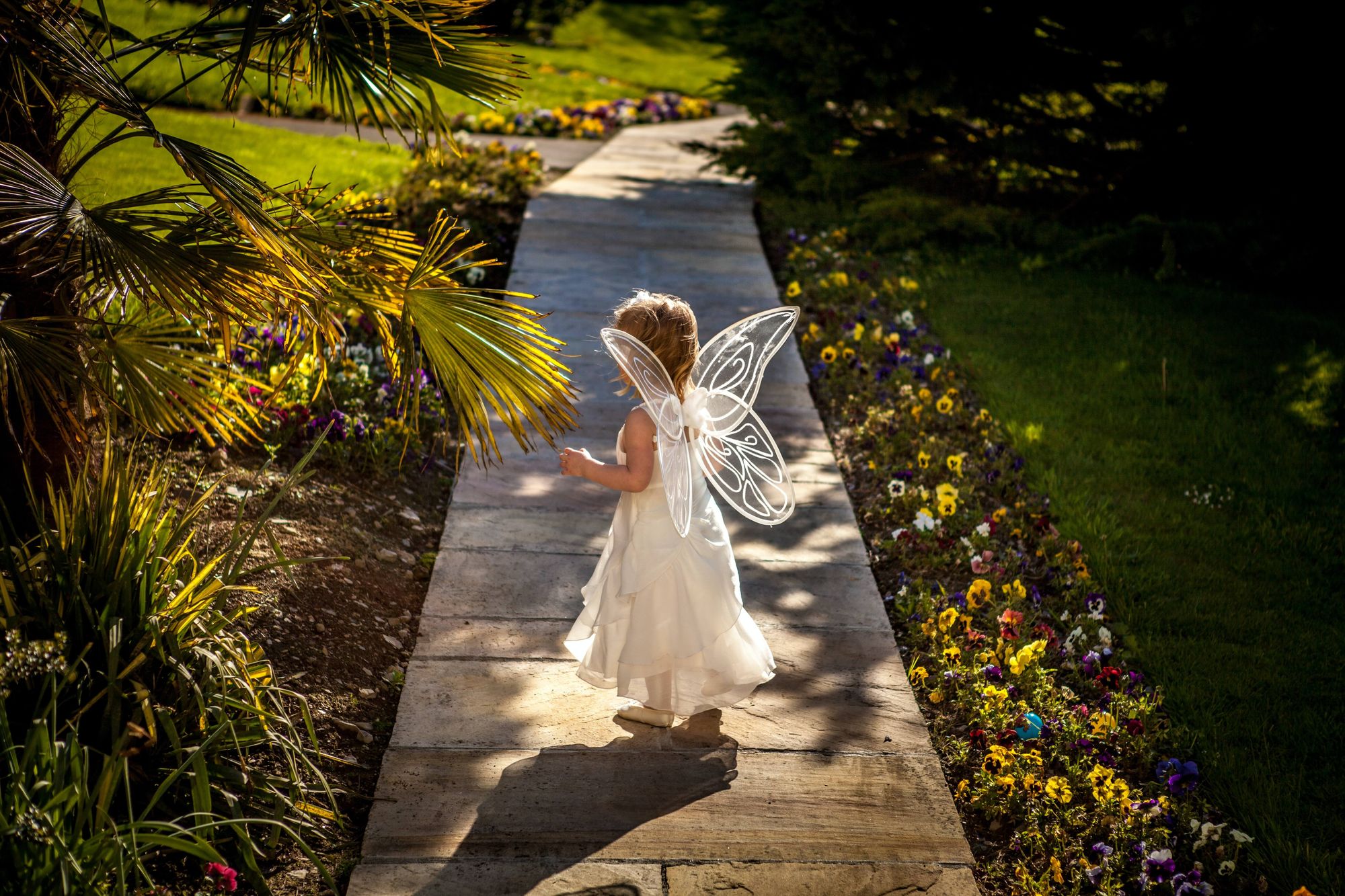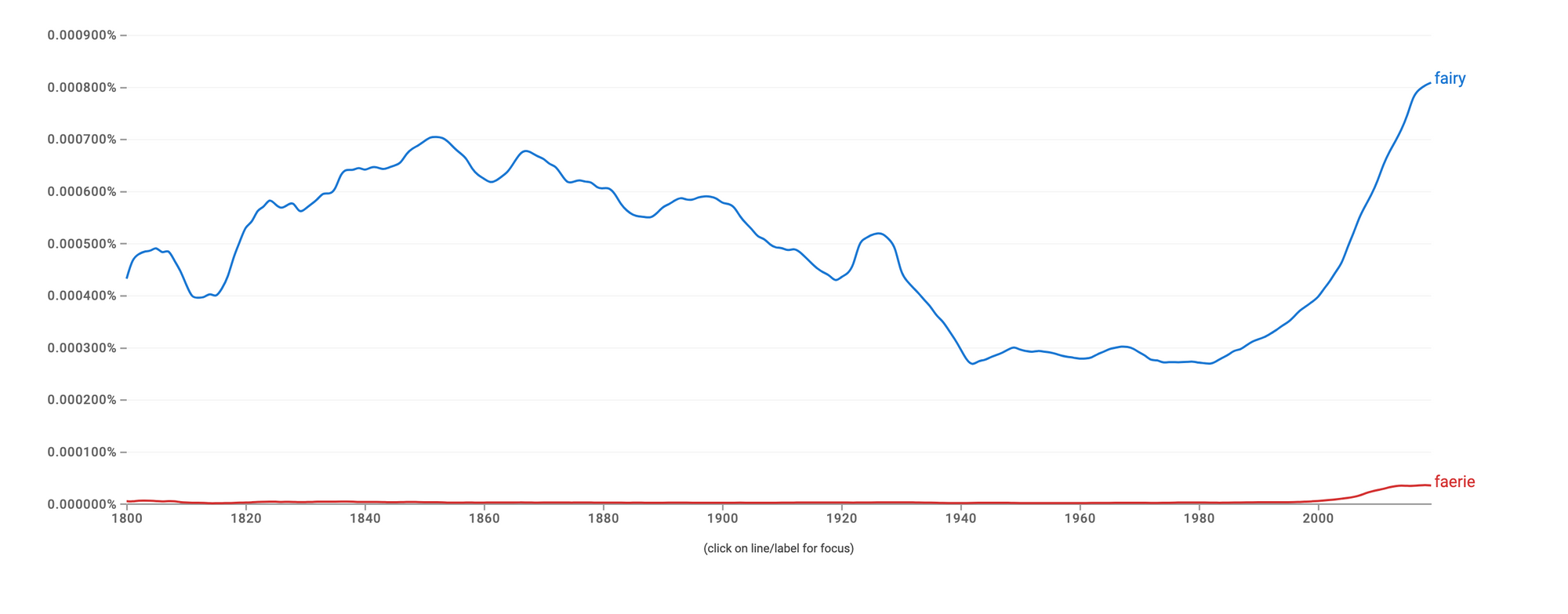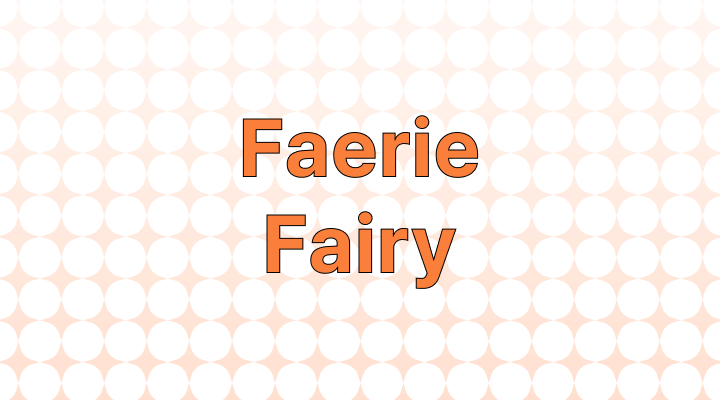- Both terms are correct, but faeries has a more archaic or fantastical feel.
- "Fairies" is a more general term that is commonly used in English literature and popular culture to describe magical beings or supernatural entities.
- "Faeries" typically refers to mythical or supernatural beings, often associated with folklore, Celtic mythology, or a more broad and diverse range of mythologies.
🧚 The curious fairy fluttered gracefully among the flowers, sprinkling a gentle magic that brought joy to the garden.
🧚 In the ancient forest, mysterious faeries danced in a shimmering circle, casting spells and weaving enchantments that echoed through the enchanted glade.
Ah, the whimsical world of fairies! These tiny, winged beings have captivated imaginations for centuries, flitting through moonlit forests and whispering secrets on the wind. But have you ever stumbled upon the word "faerie" and wondered if it's just a fancy way to say "fairy"? Well, buckle up, fellow fantasists, because we're diving into the enchanting realm of spelling and lore to uncover the truth!
Is fairy and faerie the same?
Not quite. In essence, "fairy" and "faerie" refer to the same mythical creatures. The choice of spelling comes down to personal preference and context. Here's a quick breakdown:
- Modernity: Use "fairy" for everyday situations, children's stories, and lighthearted contexts.
- Mysticism: Opt for "faerie" when you want to add a touch of magic, age, or otherworldliness to your writing or speech.
Some argue that the difference goes beyond mere aesthetics. They claim "faerie" carries a darker undercurrent, hinting at the potentially mischievous or even dangerous nature of these creatures. This association stems from older folktales, where fairies were not always the benevolent sprites we know today. They could be tricksters, stealers, or even deadly. However, this interpretation is not universally accepted. Many argue that both spellings can encompass the full spectrum of fairy personalities, from benevolent to mischievous. Ultimately, the meaning you attach to each word is up to you!
To distinguish between "faerie" and "fairy," remember the 'e' in "faerie" for an enchanting, mystical feel. Associate "faerie" with folklore and nature. "Fairy" is broader, often featuring winged creatures. The extra 'e' signals a more magical and traditional context, while "fairy" is versatile in modern settings.

Based on the graph below, we can see that "fairy" was used more frequently than "faerie" especially after the 1980s.

How do we pronounce faerie and fairy?
Faerie
In American English, faerie is pronounced feh·ree.
In British English, fairy is pronounced feuh·ree.
These are just the standard pronunciations, and there may be slight variations depending on regional accents and individual speech patterns.
Is there a difference between fae and fairy?
The terms "fae," and 'fairy" are related and often used interchangeably, but there are subtle distinctions in usage and connotations:
Fae
- "Fae" is a broad term that refers to supernatural or mythical beings, often associated with magic, nature, and enchantment. It is a more inclusive term that encompasses various magical creatures, including fairies, elves, and other similar beings.
Example sentences
- The mystical forest was said to be inhabited by the fae, who wove spells into the very fabric of nature.
- As twilight fell, the fae emerged from their hidden realm, their ethereal glow lighting up the darkening woods.
- Legends spoke of a sacred grove where the fae convened to celebrate the changing seasons.
- The old traveler claimed to have encountered the fae folk during a journey through the ancient moors.
- A shimmering mist enveloped the meadow, concealing the entrance to the fae's secret gathering place.
Is fae the plural form of fairy?
Yes, "fae" can be used as a plural form of "fairy." While "fairies" is the more common plural form, some authors and fantasy enthusiasts use "fae" to refer to a group of these mythical beings. However, it's important to note that the usage of "fae" as the plural of "fairy" may not be universally accepted, and the more traditional "fairies" is still widely used and recognized.
What does fey mean?
Fey
- "Fey" is an adjective that describes something magical or otherworldly. It is often used to characterize the mystical or enchanting qualities of a being or a place. While "fey" itself is not a noun like "faerie" or "fairy," it can be used to describe the nature of such beings.
Example sentences
- The ancient forest had an eerie and fey atmosphere, with mysterious lights flickering among the trees.
- The old castle, with its crumbling walls and fey aura, was said to be haunted by the spirits of long-gone royalty.
- The enchanting melody played by the fey musician seemed to transport listeners to a realm beyond the ordinary.
- As the sun dipped below the horizon, the landscape took on a fey glow, casting long shadows that danced in the fading light.
- The peculiar stone circle exuded a fey energy, making it a site of wonder and speculation among the locals.
Example sentences of fairy and faerie
Fairy:
- The gentle fairy sprinkled her magic dust, transforming the barren garden into a vibrant oasis of blossoms.
- With delicate wings fluttering, the fairy danced among the moonlit flowers, casting a soft glow upon the enchanted glade.
- In the old oak tree, a tiny fairy made her home, surrounded by twinkling fireflies that served as her loyal companions.
- The mischievous fairy hid behind the toadstool, giggling as she watched the perplexed humans searching for their misplaced belongings.
- As the seasons changed, the fairy would don a new set of shimmering wings, reflecting the hues of autumn leaves or spring blossoms.
- Children delighted in tales of the woodland fairy, a benevolent guardian who protected the forest creatures from harm.
- With a wave of her tiny wand, the fairy granted the kind-hearted girl three wishes, bringing unexpected joy to her life.
- The ancient folklore spoke of a celestial fairy who wove dreams in the starlit sky, creating a tapestry of wishes for those who dared to dream.
- A solitary fairy perched on a dew-kissed lily pad, her reflection shimmering in the still waters of the mystical pond.
- Guided by the soft glow of firefly lanterns, the fairy procession made its way through the twilight forest, leaving traces of magic in its wake.
Faerie:
- Deep in the heart of the ancient forest, the faerie folk gathered to celebrate the arrival of the equinox.
- The mysterious faerie queen, with her ethereal beauty, ruled over the hidden realms where mortals seldom dared to tread.
- Legends spoke of a secret portal that led to the faerie realm, accessible only to those pure of heart and attuned to nature's whispers.
- The elusive faerie lights danced through the midnight air, captivating travelers who stumbled upon the enchanted glen.
- The wise elder of the faerie community imparted ancient knowledge to those who sought the hidden truths of the mystical world.
- Faerie circles, mysterious rings of mushrooms, were said to be gateways to the faerie realm, where time flowed differently.
- A lone wanderer encountered a faerie bard, whose haunting melody echoed through the moonlit grove, recounting tales of forgotten epochs.
- Legends foretold that a golden key held the power to unlock the ancient faerie library, containing the wisdom of ages untold.
- The mischievous faerie prankster amused herself by leading lost travelers in circles within the enchanted labyrinth of the faerie woods.
- The faerie emissary appeared at the edge of the village, bearing a message of harmony between the mortal and faerie realms.
The blog post explored the distinctions between "faeries" and "fairies." It delves into the cultural and mythological roots of both terms, highlighting how "faeries" are often associated with folklore and Celtic traditions, while "fairies" encompass a broader range in literature and popular culture. The post emphasizes linguistic nuances, nature connections, and visual cues to aid in remembering the differences between these enchanting beings.

Want to sound like a native speaker?
Engram’s AI-powered grammar checker makes your English sound like a native speaker’s, suggesting natural English expressions on top of fixing grammar, spelling, punctuation, word order, and vocabulary.

References:















